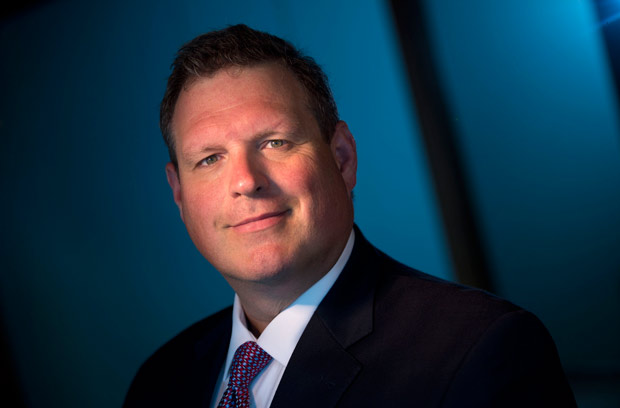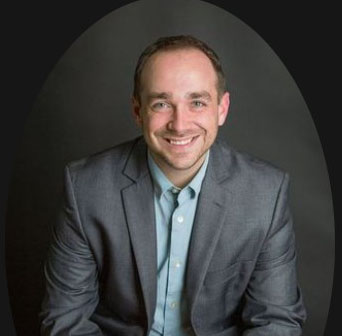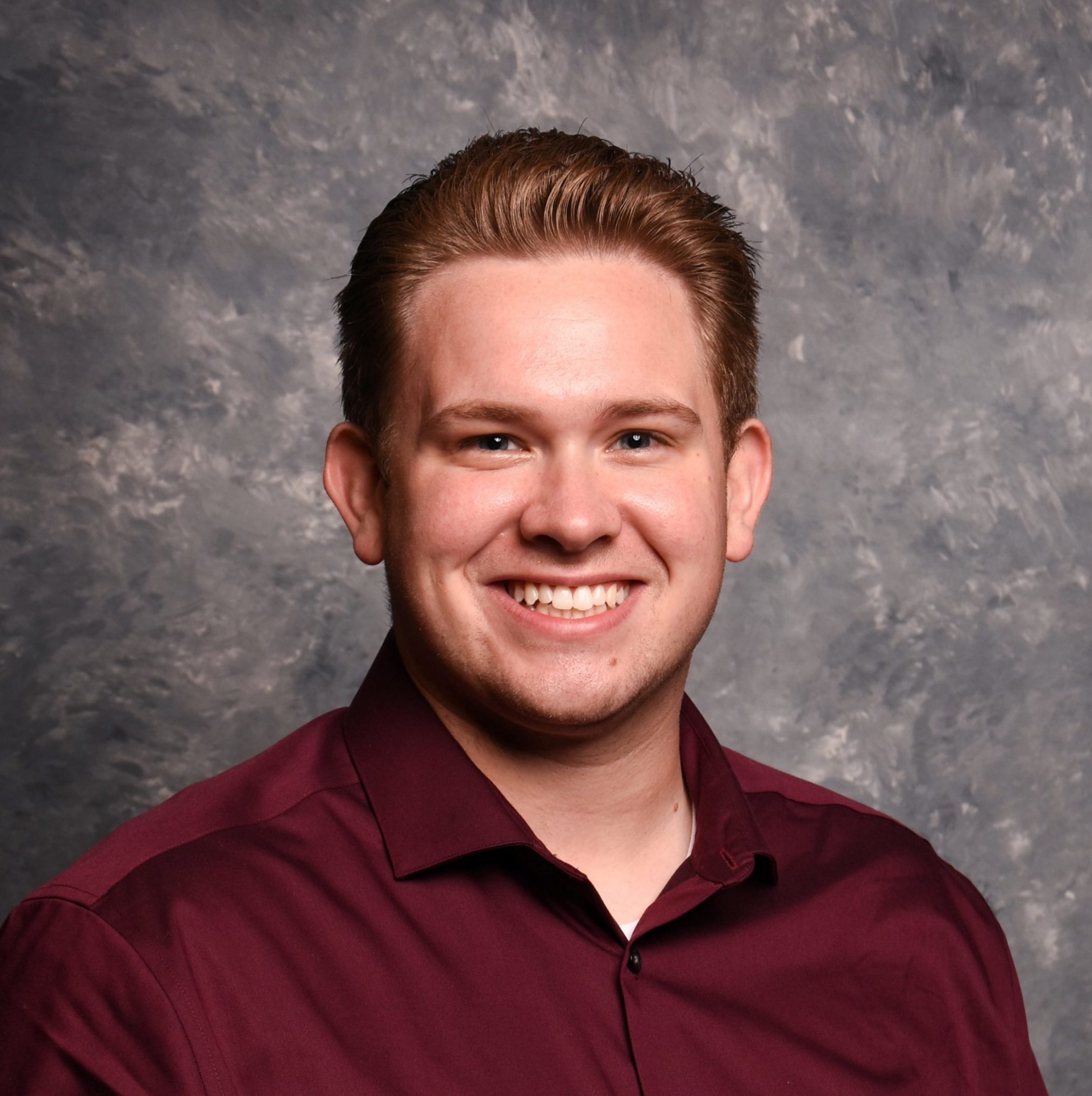Feldhausen uses Navy background to keep clients out of rough waters
By: MaryBeth Matzek, Special to the Wisconsin Law Journal//September 14, 2016//
Feldhausen uses Navy background to keep clients out of rough waters
By: MaryBeth Matzek, Special to the Wisconsin Law Journal//September 14, 2016//

By MaryBeth Matzek
Special to the Wisconsin Law Journal
Timothy Feldhausen likens the assistance he provides to corporate business clients at Davis & Kuelthau to driving a warship, something he did for several years while with the U.S. Navy.
“Driving the ship I knew where the hazards were and had to make decisions on how to avoid them. With my clients, I’m doing the same thing — helping them get around any hazards out there so they can accomplish their business goals,” said Feldhausen, an attorney in the firm’s Green Bay office.
Feldhausen graduated from the U.S. Naval Academy and served eight years as a Naval officer at sea and worked as a teacher at the Naval Academy before making the decision to attend law school.
“I felt my real-world experience would be a benefit as an attorney and it was something that appealed to me,” he said.
While Feldhausen expected to be involved in admiralty law, he found himself drawn to corporate law.
“With my military background I think I felt drawn to the firm rules in this area of the law,” he said.
Feldhausen focuses on complex legal and business matters, including asset and stock purchase transactions for businesses, and also counsels clients on business structuring, mergers and acquisitions.
When working with clients, Feldhausen discusses their goals and the best way to reach them. Throughout the process, he keeps them updated on what is happening.
“I view myself as an educator. I want them to understand the process,” he said. “A lot of my clients are long-term and I’m often thinking about them, even if there isn’t an active project. I may see something in the paper or online that is of interest to them in their business and send that to them. That shows them I am tuned in to what they are doing.”
Wisconsin Law Journal: What makes your work important to you?
Timothy Feldhausen: Seeing my clients get back to sleep. One of the best pieces of advice I ever got from a senior lawyer as a young lawyer just starting out was, “Find out what’s keeping your client awake at night, and then figure out a way to get them back to sleep.” I’ve always found that to be some of the best advice I’ve ever received. My most important skill is being able to listen. Sometimes they just need someone to listen. Business attorneys, like insurance agents and other professionals, live in a world of risk. You have to be comfortable in that environment and be able to convey to your clients that the world is full of gray rather than black and white. It is a valuable skill to be able to explain where the various risks are and what the likely outcomes might be to someone who may not have considered everything.
WLJ: Who is your hero in the legal field?
Feldhausen: Charles Dickens. It might seem odd that a non-lawyer is my legal hero, but Dickens not only clerked at a law firm, but also reported extensively on the workings at court. He was not only the conscience of his generation, but his writings on the failings of the English court system were also responsible for many changes to the then-archaic court system. Perhaps his most famous line from the book ‘Bleak House’ captures a concept I often try to get across to my clients: ‘Suffer any wrong that can be done you rather than come here (to the Court of Chancery).’ Today’s courts are well beyond what they were in Dickens’ day in terms of service and efficiency, but litigation is still a lengthy and costly means of achieving a client’s goals. I often use these words to describe the adversarial legal system to clients and why negotiation and communication might be a better alternative for business issues (most of the time).
WLJ: What do you do outside of work to deal with stress from the office?
Feldhausen: I enjoy a number of activities and hobbies that help me maintain some balance in my life. Keeping things in perspective is something I learned years ago during my time at sea as a Navy officer. My hobbies these days help keep me focused and take my mind off of my practice and its stresses. I am an amateur radio — ham radio — operator, but I also enjoy reading history (I used to teach college history), fishing and upland hunting, as well as camping. Getting out into the woods or on the water can be one of the best ways to unwind from the calls and the computer — getting back to nature and enjoying it for its beauty. Wisconsin is filled with great outdoor areas!
WLJ: What’s one thing many people get wrong about what you do?
Feldhausen: Potential clients sometimes think that they don’t need a lawyer unless a problem arises. In the end it costs them more time and money to undo something wrong than to spend a little extra to do it right the first time. I think I bring the most value to my clients when I work with them ahead of any troubles by clearly showing where the greatest risk lies and working through solutions to reduce that risk. Contrary to what some clients think, I am not a risk manager. My clients are risk managers. I am an advisor or a ‘risk specialist,’ if you will. Only the client can make the decision, but it is my job to see that they are as fully informed as possible. The biggest complement clients have paid me is when they thank me for educating them on the risks or on a particular process. I think that is because the teacher in me comes out so often.
WLJ: What’s your favorite memory from law school?
Feldhausen: As a young law student, everyone in my law school always spoke of the latest goings on in the U.S. Supreme Court. They studied the Supremes like an astrologer studies the constellations. Students would try to catch the Supreme Court in session (my law school was in the heart of Washington, D.C.). I always envied them until one day after my first visit to D.C. Superior Court (the lowest court level in the D.C. court system). I will never forget all of the energy and bustle and watching the cases going on. It left me with an impression that has never gone away. If you want to see how the law really works and why being a lawyer can be a noble profession, look at the lower level courts (where normal people have issues decided that affect them the most) rather than in the rarified air of the high courts.
WLJ: Is there a certain case that stands out to you?
Feldhausen: As a transactional and general corporate attorney (and not a litigator), I focus on the completion of transactions rather than cases. The one transaction that stands out in my mind was the largest one I have worked on to date — more than $400 million. My job was coordinating a bunch of specialist lawyers (sometimes called SMEs or Subject Matter Experts) to ensure everything stayed on track. The best practice and negotiation advice I ever got was simply by sitting close to the senior business people during dinners listening to strategy and negotiations. I soaked it up like a sponge. You can’t pay for that kind of education.
Legal News
- Some State Bar diversity participants walk away from program
- Wisconsin court issues arrest warrant ‘in error’ for Minocqua Brewing owner
- Iranian nationals charged cyber campaign targeting U.S. Companies
- Facing mostly white juries, are Milwaukee County defendants of color truly judged by their peers?
- Milwaukee Mayor speaks in D.C. Tuesday at White House water summit
- Chicago man sentenced to prison after being caught with ‘Trump Gun’
- FTC bans non-competes
- Gov. Evers seeks applicants for Dane County Circuit Court
- Milwaukee man charged in dismemberment death pleads not guilty
- Democratic-led states lead ban on the book ban
- UW Madison Professor: America’s child care crisis is holding back moms without college degrees
- History made in Trump New York trial opening statements
WLJ People
- Power 30 Personal Injury Attorneys – Russell Nicolet
- Power 30 Personal Injury Attorneys – Benjamin Nicolet
- Power 30 Personal Injury Attorneys – Dustin T. Woehl
- Power 30 Personal Injury Attorneys – Katherine Metzger
- Power 30 Personal Injury Attorneys – Joseph Ryan
- Power 30 Personal Injury Attorneys – James M. Ryan
- Power 30 Personal Injury Attorneys – Dana Wachs
- Power 30 Personal Injury Attorneys – Mark L. Thomsen
- Power 30 Personal Injury Attorneys – Matthew Lein
- Power 30 Personal Injury Attorneys – Jeffrey A. Pitman
- Power 30 Personal Injury Attorneys – William Pemberton
- Power 30 Personal Injury Attorneys – Howard S. Sicula











